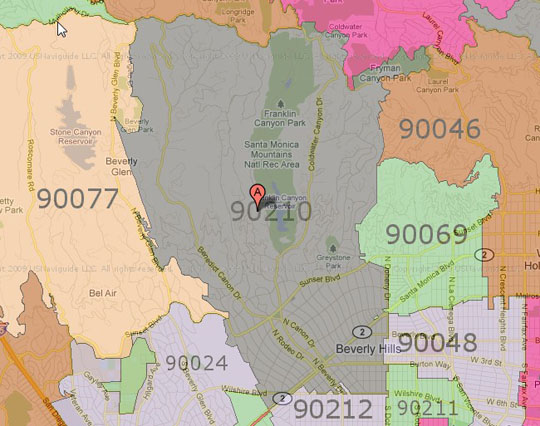Genealogy This Week - 24 July 2010
Our weekly compilation of interesting new tools, resources and stories for genealogists. This week:
Update on Australian Trove – Here is an important update for Australian genealogists. The National Australian Library has been running two parallel websites for historical newspapers. Until now, the two websites had identical functionality. However, according to Rose Holley, Manager of Trove, who emailed GenealogyInTime™, going forward only the Trove website will be updated. For technical reasons, both websites will be available until the end of 2010. Trove is the website with the green banner. The soon-to-be discontinued website has the blue banner and blue background. Please make sure you use the correct website. And make sure you inform your fellow genealogists. [Trove newspaper website]
Zip Code Finder – This is a really handy and fun tool for anyone looking for a zip code in the US. It is an interactive zip code map. Simply type in any US address and it will plot the address on a Google map. Then it will visually overlay the zip code boundaries onto the map. The boundaries for successive zip codes are also shown on the map (see image below). This is a great free visual tool as well as being very useful. [Zip Code Finder]

The End of Forgetting – The New York Times newspaper put out a thoughtful article this week that discusses how the Internet Age means much more content is recorded today than even ten years ago and – even more importantly – the internet does not forget. In other words, the internet records things for all posterity. This article ties in nicely with our recent article Canada Alters Format of Future Censuses. Clearly the tools of a genealogist twenty years from now are going to be so much different from the genealogy tools of today. [The Web Means the End of Forgetting]
What the Library of Congress Archives Today – Speaking about forgetting, national libraries in some countries (such as the UK) have a mandate to preserve all web content in their domain. The US Library of Congress has no such mandate. Therefore, it must be selective in what it collects. Have you ever wondered what the Library of Congress is archiving today for the posterity of future generations? Here is what they currently archive from the internet:
1. Twitter feeds – all of them.
2. Internet sites for all national election candidates.
3. Facebook pages for members of Congress.
4. News stories from notable historic events (such as Hurricane Katrina).
The Library of Congress has an unfortunate conundrum when it comes to archiving current material. The internet is such a rich and deep source of information that it exceeds traditional historical sources of information by orders of magnitude. And yet, the Library of Congress can barely collect any of this internet information. The reason is that it must get webmaster permission to collect information from individual websites. Thus, the eclectic list shown above. Future genealogists will probably not be very impressed.
Who Needs an E-book Reader? – If we asked you to name the most tech-savy group on the internet, who would you say? How about university students? Young, well educated and raised on the internet, they fit the perfect profile. That is why a recent survey at the University of Colorado caught our eye. One would think that university students would be at the forefront of using e-book readers. However, that depends on what they are reading. The survey of students at the university showed that about 74% of students still prefer printed textbooks over other electronic forms. Only about 3% preferred electronic textbooks. Apparently, there is no substitute for pen and paper, even amongst tech-savy university students. So, if you are at retirement age or close to retirement age like most genealogists and you have not read our article Apple iPad and Genealogy then maybe an ebook reader can wait a couple of years. You might not miss that much.

